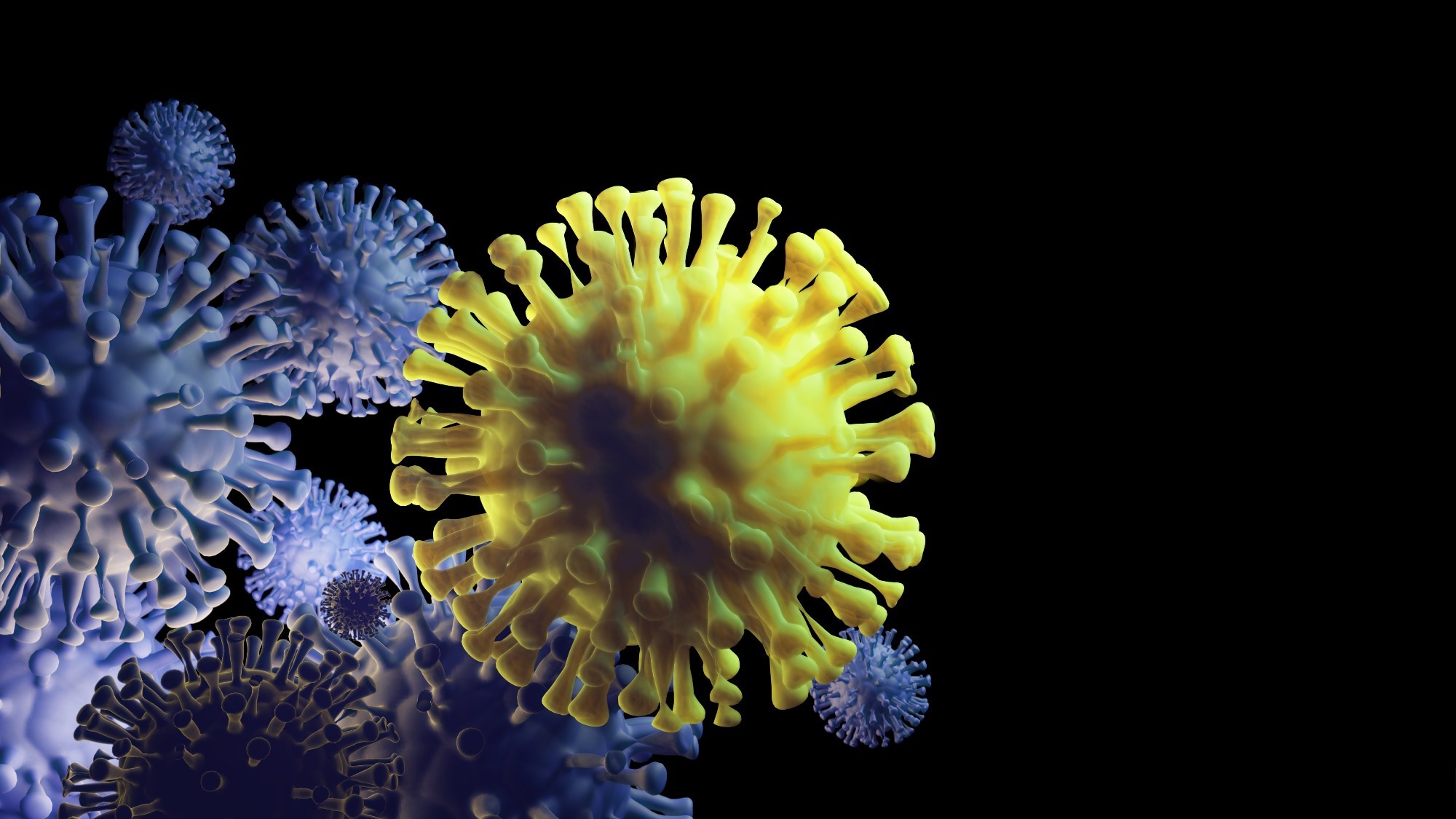Viral severe acute respiratory syndrome coronavirus 2 (SARS-CoV-2) initiated the coronavirus disease 2019 (COVID-19) pandemic in 2020. The pandemic caused in excess of 6 million deaths and even more hospitalizations.
While vaccines were rolled out within a year, the emergence of new variants led to the evasion of natural and vaccine-induced immunity in some cases.
The BA.2.86 variant was recently identified, a subvariant of the virus's Omicron variant of concern (VOC).
A new preprint posted to the bioRxiv server discusses whether this variant shows neutralization escape.
 Study: Neutralization Escape by SARS-CoV-2 Omicron Subvariant BA.2.86. Image Credit: joshimerbin/Shutterstock.com
Study: Neutralization Escape by SARS-CoV-2 Omicron Subvariant BA.2.86. Image Credit: joshimerbin/Shutterstock.com

 *Important notice: bioRxiv publishes preliminary scientific reports that are not peer-reviewed and, therefore, should not be regarded as conclusive, guide clinical practice/health-related behavior, or treated as established information.
*Important notice: bioRxiv publishes preliminary scientific reports that are not peer-reviewed and, therefore, should not be regarded as conclusive, guide clinical practice/health-related behavior, or treated as established information.
Introduction
The Omicron BA.2.86 subvariant is highly mutated from the Omicron variant, with over 30 mutations from the ancestral or wild-type virus.
Compared to the earlier BA.2 and XBB.1.5 subvariants of Omicron, BA.2.86 shows more than 30 mutations in the spike protein responsible for target cell attachment and most of the primary antibody response to the virus.
BA.2.86 has now been documented in ten countries, though the low level of ongoing surveillance makes this almost certainly an underestimate.
A prime concern of public health experts was whether this subvariant escapes neutralizing antibodies (NAbs) elicited by other Omicron variants now in circulation.
Few studies have been carried out in this area. However, the current study examined individuals immunized with the COVID-19 bivalent booster in late 2022, comparing their NAb response with 22 non-boosted individuals.
Most participants had received a median of three doses of a COVID-19 vaccine and had a history of one COVID-19 bout, at least.
What did the study show?
At baseline, NAb titers against the wildtype or Wuhan variant were 16,000, vs. 1,600 and 300 against the BA.2 and BA.2.86, respectively. As expected, neutralization was highest against the Wuhan variant.
In the boosted cohort, the findings showed increased NAb response at three weeks. NAb titers against the Wuhan variant rose to 23,200 at week three after the booster dose. For BA.2, the titer rose to 4,800 at this point, while for BA.2.86, it was only 355.
NAb titers dropped to baseline at six months in those who did not contract XBB infection during this time; for instance, NAbs against BA.2 increased slightly to a median of 2,600 after the booster from the baseline of 1,600.
For BA.2.86, the median baseline NAb response was 300, and at six months from the booster dose, it was 200.
It was observed that neutralizing antibody responses to BA.2.86 were lower by 5-13-fold compared to BA.2. However, the titers were equivalent to or somewhat greater than those elicited by other Omicron variants in circulation, including XBB.1.5, XBB.1.16, EG.5, EG.5.1, and FL.1.5.1.
The mean baseline titers against these variants ranged from 65-160 and from 100-500 at six months.
The six-month-old NAb titers in the boosted cohort were comparable with those in the unboosted cohort.
In the boosted vs. unboosted cohort, the durability of the NAb response was tested at a mean of 480 days vs 180 days from the last vaccine dose. Thus, the bivalent booster does not produce durable protection.
Conversely, NAb titers rose if the boosted individual was infected during the XBB.1-predominant period. Half of the participants in either cohort were infected, with seven unboosted participants reporting two infections.
The six-month median NAb titer against BA.2 was 4,400 in the unboosted cohort and 1,000 against BA.2.86, against the baseline of 1,600 and 300, respectively.
The mean duration from the last infection to the sampling date for the durability of the antibody response was ~250 days, vs. 283 days in the boosted cohort.
What are the implications?
The authors suggest that BA.2.86 is a direct descendant of BA.2, which is relatively less resistant to neutralization than the XBB.1.5, XBB.1.16, EG.5, EG.5.1, and FL.1.5.1 variants are recombinants.
This may have led to their relative dominance since they may have been positively selected because they escape neutralization by antibodies elicited by infection with XBB variants. In contrast, XB1.6 is a recombinant of BA.2 and Delta but has less resistance than XBB.1.5.
SARS-CoV-2 continues to evolve, and newer variants may exhibit increased neutralization escape capabilities against natural and vaccine-induced antibodies.
As such, the authors say, it would be necessary to keep an eye on BA.2.86 as it spreads and evolves.

 *Important notice: bioRxiv publishes preliminary scientific reports that are not peer-reviewed and, therefore, should not be regarded as conclusive, guide clinical practice/health-related behavior, or treated as established information.
*Important notice: bioRxiv publishes preliminary scientific reports that are not peer-reviewed and, therefore, should not be regarded as conclusive, guide clinical practice/health-related behavior, or treated as established information.